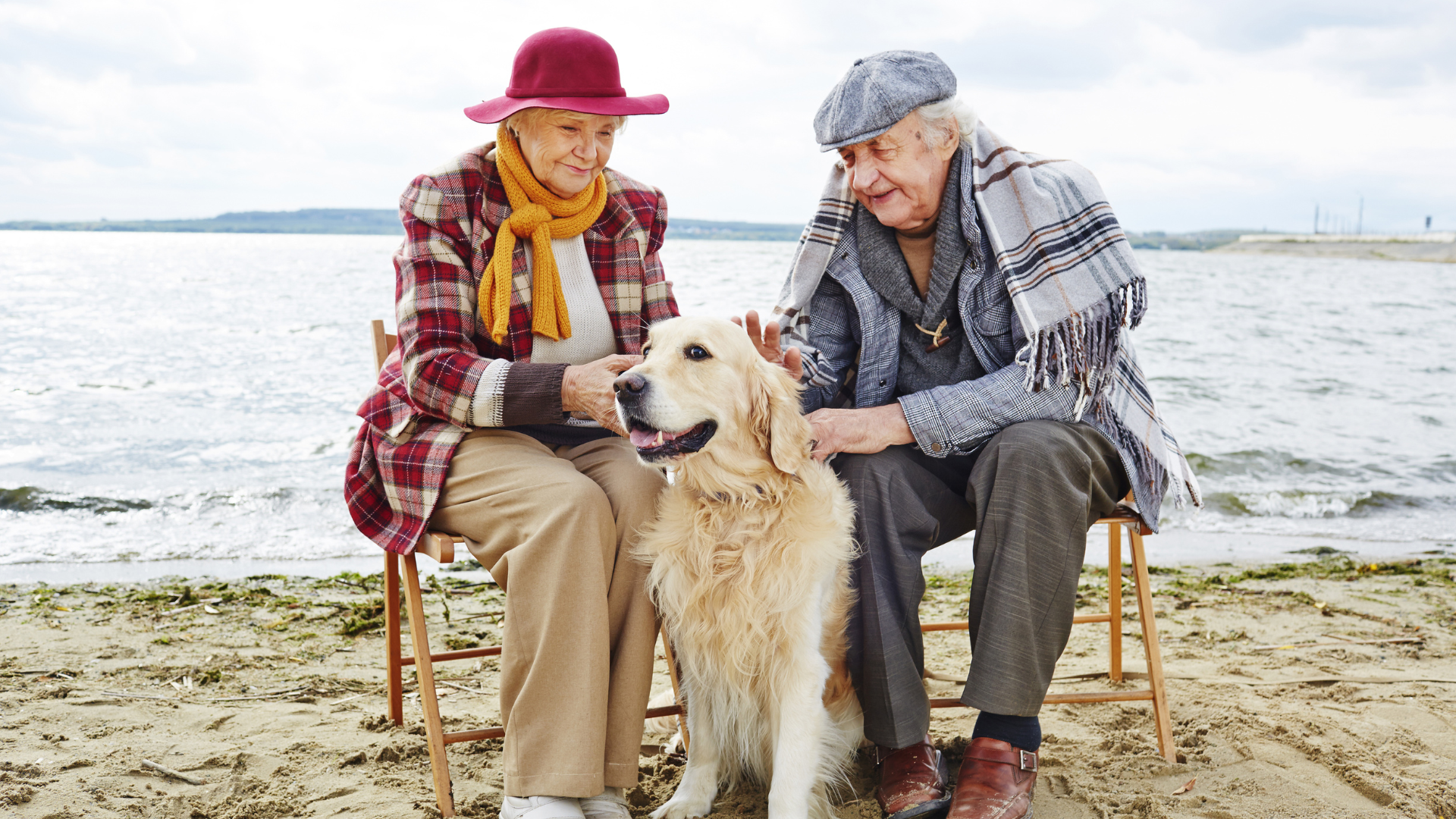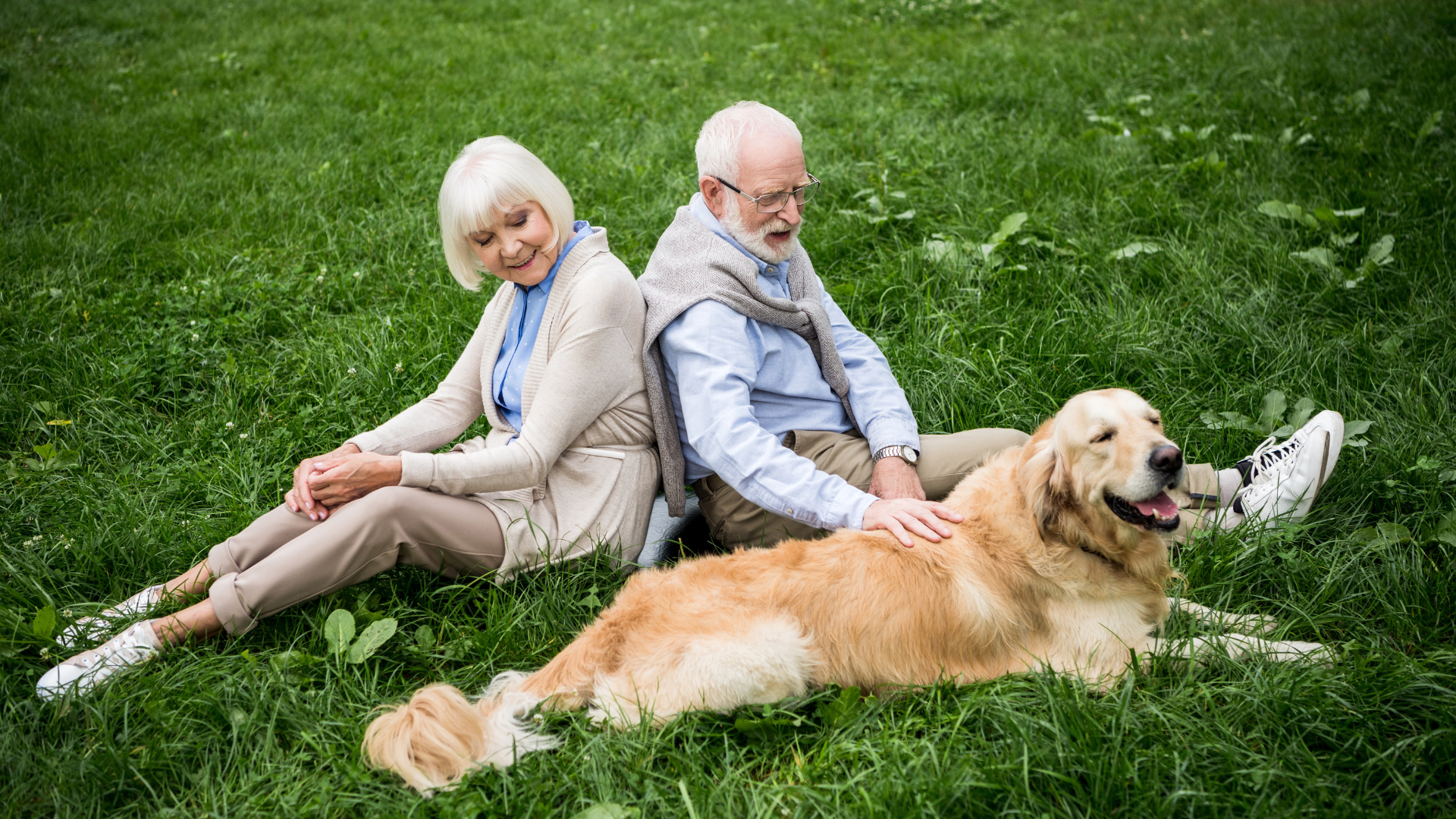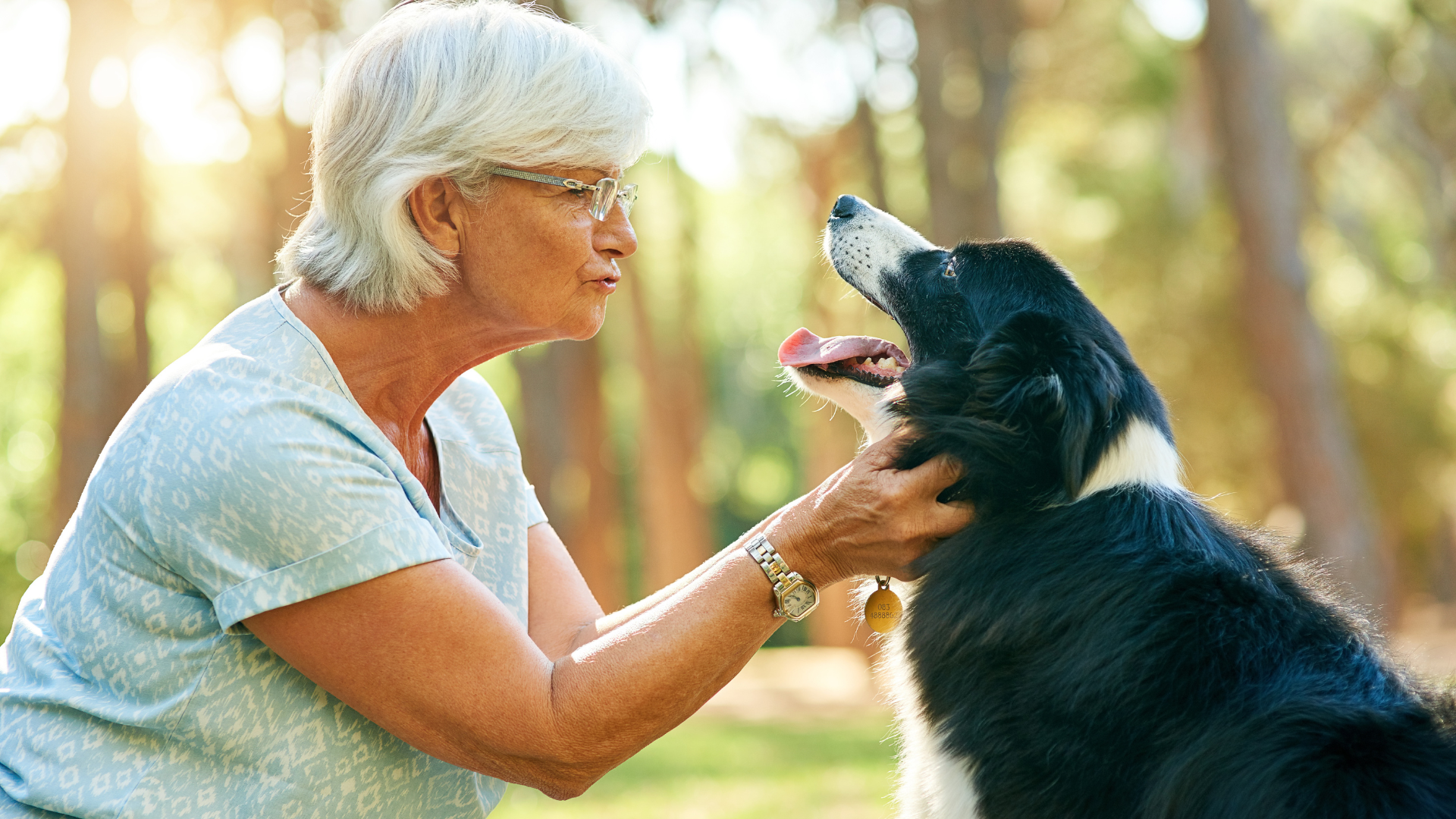As people age, they may find themselves looking for a companion that suits their lifestyle and abilities. For many, a dog can provide the perfect companionship. However, not all dog breeds are suitable for seniors. Some dogs may be too high-energy, while others may require too much grooming or training.

When it comes to choosing the best dog for seniors, there are a few factors to consider. One of the most important is energy level. Seniors may not have the same level of energy as younger people, so a dog that is low-maintenance and adaptable may be a better fit. Additionally, size is an important consideration. Seniors may prefer a smaller dog that is easier to handle and requires less space.
Fortunately, there are many dog breeds that are well-suited for seniors. From small lap dogs to larger breeds that are known for their calm temperament, there is a dog out there for everyone. By doing a little research and considering their own needs and lifestyle, seniors can find the perfect companion to share their golden years with.
Benefits of Owning a Dog for Seniors
Companionship
For seniors who live alone or have limited social interaction, owning a dog can provide much-needed companionship. Dogs are known for their loyalty and unconditional love, which can help seniors feel less lonely and isolated. Additionally, dogs can provide a sense of security and comfort, especially for seniors who live in areas with high crime rates or who have experienced traumatic events.

Exercise and Physical Health
Owning a dog can also have physical health benefits for seniors. Dogs require regular exercise, which means that seniors who own dogs are more likely to get outside and engage in physical activity. This can help seniors maintain their mobility, strength, and overall health. Additionally, studies have shown that owning a dog can lower blood pressure and cholesterol levels, which can reduce the risk of heart disease and other health problems.
Mental Well-being and Emotional Support
In addition to physical health benefits, owning a dog can also have mental health benefits for seniors. Dogs are known for their ability to reduce stress and anxiety, which can be particularly beneficial for seniors who struggle with these issues. Additionally, dogs can provide emotional support and comfort during difficult times, such as after the loss of a loved one or during a period of illness.
Overall, owning a dog can be a wonderful experience for seniors. From providing companionship and emotional support to promoting physical health and well-being, dogs can have a positive impact on the lives of seniors.
Factors to Consider When Choosing a Dog
When choosing a dog for seniors, there are several factors to consider. These factors will help ensure that the dog is a good fit for the senior's lifestyle and needs.
Dog Size and Space Requirements
One of the most important factors to consider is the size of the dog. Seniors may prefer smaller dogs that are easier to handle and require less space. It is important to choose a dog that can comfortably fit in the senior's home and is not too large for them to handle.

Energy Levels and Exercise Needs
Seniors may also want to consider the energy levels and exercise needs of the dog. Some dogs require more exercise and playtime than others. Seniors who are less active may prefer a dog that is more laid-back and doesn't require as much exercise.
Temperament and Trainability
Another important factor to consider is the temperament and trainability of the dog. Seniors may prefer a dog that is calm and easy to train. It is important to choose a dog that is well-behaved and won't cause any problems for the senior.
Health Considerations and Lifespan
Finally, seniors may want to consider the health considerations and lifespan of the dog. Some breeds are more prone to health problems than others, so it is important to choose a breed that is healthy and has a long lifespan. Seniors should also be prepared for the financial responsibilities that come with owning a dog, including veterinary bills and other expenses.
By considering these factors, seniors can choose a dog that will be a great companion and fit well into their lifestyle.
Top Dog Breeds for Seniors
When it comes to choosing a dog breed for seniors, there are a few things to consider, such as the dog's size, energy level, and temperament. Here are some of the top dog breeds for seniors, broken down by size and maintenance level.
Small Breeds
Small dog breeds are a great choice for seniors who live in apartments or have limited space. They also tend to be low-maintenance and easy to handle. Here are some of the best small dog breeds for seniors:
- Bichon Frise: This small, fluffy breed is known for being affectionate and playful. They require regular grooming to maintain their coat, but are otherwise low-maintenance.
- Poodle: Poodles come in three sizes (toy, miniature, and standard) and are known for being intelligent and loyal. They have a hypoallergenic coat that requires regular grooming.
- Shih Tzu: The Shih Tzu is a small, affectionate breed that is known for being good with children and other pets. They have a long, silky coat that requires regular grooming.
Medium Breeds
Medium dog breeds are a good choice for seniors who want a dog that is a bit larger, but still manageable. Here are some of the best medium dog breeds for seniors:
- Cavalier King Charles Spaniel: This breed is known for being affectionate and gentle. They have a medium-length coat that requires regular grooming.
- Cocker Spaniel: Cocker Spaniels are friendly, affectionate dogs that are good with children and other pets. They have a medium-length coat that requires regular grooming.
- Miniature Schnauzer: The Miniature Schnauzer is a small, energetic breed that is known for being intelligent and loyal. They have a hypoallergenic coat that requires regular grooming.
Low-Maintenance Breeds
For seniors who want a dog that is low-maintenance and easy to handle, there are several breeds to choose from. Here are some of the best low-maintenance dog breeds for seniors:
- Chihuahua: Chihuahuas are small, low-maintenance dogs that are known for being loyal and affectionate. They require minimal grooming and exercise.
- Dachshund: Dachshunds are small, low-maintenance dogs that are known for being loyal and playful. They require minimal grooming and exercise.
- Pug: Pugs are small, low-maintenance dogs that are known for being affectionate and playful. They require minimal grooming and exercise.
Overall, there are many dog breeds that are well-suited for seniors. By choosing a breed that is the right size and temperament for their lifestyle, seniors can enjoy the companionship and love of a furry friend for years to come.
Adoption Tips for Seniors
Choosing the Right Shelter
The first step in adopting a dog is to choose the right shelter. Seniors should look for a shelter that specializes in senior dogs. These shelters will have a selection of dogs that are more likely to be compatible with seniors. It's important to visit the shelter and spend time with the dogs to get a feel for their personalities. Seniors should also ask the staff about the dog's history and any medical issues they may have.
Understanding Adoption Processes
Seniors should understand the adoption process before they begin. Most shelters will require an application and an interview before they will allow the adoption to take place. The application will ask questions about the senior's lifestyle, living situation, and experience with dogs. The interview will give the shelter staff a chance to get to know the senior and ensure that they are a good fit for the dog.
Preparing Your Home for a New Dog
Seniors should prepare their home for a new dog before they bring it home. This includes purchasing food, water, and food bowls, as well as a comfortable bed for the dog to sleep in. Seniors should also make sure that their home is safe for the dog. This includes removing any hazardous items, such as chemicals or sharp objects, and making sure that the dog cannot escape from the yard.

Overall, adopting a dog can be a rewarding experience for seniors. By following these adoption tips, seniors can find the perfect dog for their lifestyle and ensure that the adoption process goes smoothly.
Senior Dog Care
Taking care of a senior dog requires a bit more attention and care than a younger one. Senior dogs require a balanced diet, regular grooming, and veterinary check-ups to ensure they remain healthy and happy.
Nutrition and Feeding
Senior dogs require a balanced diet that is specially formulated to meet their nutritional needs. It is important to feed them high-quality dog food that is rich in protein, fiber, and vitamins. A senior dog's diet should also be low in fat to prevent obesity, which can lead to health problems such as diabetes, arthritis, and heart disease.
It is recommended to feed senior dogs smaller meals throughout the day instead of one large meal. This helps to prevent digestive issues and bloating. It is also important to provide fresh water at all times to keep your senior dog hydrated.
Grooming and Hygiene
Grooming is a crucial aspect of senior dog care. Regular grooming helps to keep your dog's coat healthy and shiny while also preventing skin infections and other health problems. Brushing your dog's coat regularly helps to remove dead hair, dirt, and debris. It also helps to distribute natural oils throughout the coat, keeping it healthy and shiny.

In addition to regular brushing, senior dogs also require regular nail trimming, teeth brushing, and ear cleaning. This helps to prevent infections and other health problems.
Veterinary Care and Regular Check-Ups
Regular veterinary check-ups are crucial for senior dogs. It is recommended to take your senior dog to the vet at least once a year for a check-up. During the check-up, the vet will examine your dog for any health problems and recommend any necessary treatments or medications.
Senior dogs also require regular dental check-ups and cleanings to prevent dental problems such as gum disease and tooth decay. It is important to follow your vet's recommendations for dental care to keep your senior dog healthy and happy.
In conclusion, taking care of a senior dog requires a bit more attention and care than a younger one. A balanced diet, regular grooming, and veterinary check-ups are crucial for keeping your senior dog healthy and happy. By following these tips, you can ensure that your senior dog enjoys a long and happy life.
Resources and Support for Senior Dog Owners
There are a variety of resources and support available for senior dog owners. Here are some options to consider:
Local Dog Training Classes
Local dog training classes can be a great resource for senior dog owners who want to improve their dog's behavior and socialization skills. These classes can also provide a fun and engaging way for seniors to spend time with their furry friends. Some local dog training classes may even offer senior discounts or special classes designed specifically for senior dogs.
Online Communities and Forums
Online communities and forums can be a great way for senior dog owners to connect with other dog owners and share information and advice. Some popular online communities for dog owners include Reddit'sdf r/dogs community and Facebook groups like "Dog Lovers Group." These communities can provide a wealth of information on topics like training, health, and nutrition.

Pet Services and Assistance Programs
There are a variety of pet services and assistance programs available to help senior dog owners care for their furry friends. Some examples include pet food banks, low-cost veterinary clinics, and pet sitting services. Seniors may also be eligible for financial assistance programs like Meals on Wheels, which can provide pet food and other supplies.
Overall, there are many resources and support available for senior dog owners. By taking advantage of these resources, seniors can ensure that their furry friends receive the care and attention they need to live happy and healthy lives.
Conclusion:
In conclusion, finding the right dog for seniors involves careful consideration of factors like breed size, energy level, and temperament. By selecting a dog that matches their lifestyle, seniors can enjoy the myriad benefits of companionship, enhanced physical health, and emotional support. With the right preparation, choice, and ongoing care, senior dog owners can ensure their furry companions thrive in their golden years, enhancing both their lives and the lives of their beloved pets.




